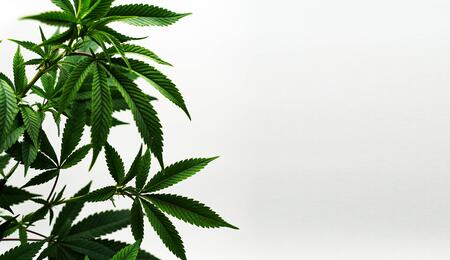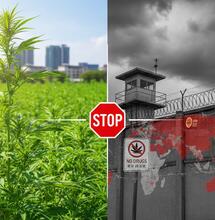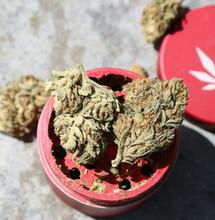Why I Want a Medical Marijuana Dispensary Near My Children's School

Notion that the closure of Berkeley Patients Group is going to protect my children is absurd
SOURCE: www.huffingtonpost.com AUTHOR: Tamar Todd
Medical dispensaries
Last week, one of California's oldest and most respected medical marijuana dispensaries, Berkeley Patients Group, closed its doors. It shut down because its landlord, like dozens across the state, received a letter from United States Attorney Melinda Haag threatening to seize the property for renting to a medical marijuana dispensary located within 1,000 feet of a school. My three children attend elementary school and preschool in West Berkeley, just blocks from Berkeley Patients Group.
The notion that the closure of Berkeley Patients Group is going to somehow serve to protect my children is patently absurd. Berkeley Patients Group served thousands of medical marijuana patients in the Berkeley area for 12 years. It was an industry leader and a model of compassion and legal integrity. It was in strict compliance with state and local law, and has long worked with the City of Berkeley and the local community to provide a safe and responsible service to patients in need. As a small business, it employed 75 people and was one of the top sales tax generators in the city.
Banks and pharmacies
Ms. Haag has claimed that one of her concerns about dispensaries that are in close proximity to schools and parks and playgrounds is the possibility they could be the target of violence or armed robbery. Banks and pharmacies are also targets of armed robberies and there are a number of them located in West Berkeley. Like Berkeley Patients Group, they have security. There is no evidence to suggest, and I have never felt, that it is dangerous to send my children to a school that happened to be near a bank, or a pharmacy.
West Berkeley is not crime-free. There have been a number of shootings in the blocks surrounding my children's elementary school in past several years. There is also significant illicit drug traffic in the neighborhood. The two are likely connected. But thus far, Ms. Haag and the federal government have devoted few, if any, resources to protecting children from gun violence or other crime in West Berkeley.
Patients
Instead, Ms. Haag has chosen to use her presumably limited resources to deprive the thousands of patients who frequent Berkeley Patients Group a legal, regulated, secure place to purchase desperately needed medicine. Of course, the closure of Berkeley Patients Group does not mean that these thousands of people will stop buying and using medical marijuana. They are sick, in pain, and are allowed to purchase and consume marijuana under settled California law (a law that was approved by voters overwhelmingly). Ms. Haag says that she is not going after medical marijuana patients.
But she must understand that patients will now simply have to find marijuana elsewhere, from the streets, and near schools and parks. Ms. Haag has not made these areas safer; she has simply increased the demand for an illegal and dangerous drug market. Ms. Haag also claims that her crackdown on dispensaries is necessary because of problematic marijuana use by high school students. The reality is that between 1996 (when California passed its medical marijuana law) and 2008 there was an overall decrease in teens' marijuana use.
An analysis commissioned by the California Department of Alcohol and Drug Programs found "no evidence" to support the claim that legalization of medical marijuana in California increased marijuana use during this period. Providing thousands of new customers to illegal drug sellers on the street might increase access to marijuana by teenagers. The existence of Berkeley Patients Group, and other well-regulated small businesses across the state, does not.
Medical marijuana
Most offensive is the notion that legal access to medical marijuana sends the wrong message to kids. I find the existence of legal medical marijuana very easy to explain to my children. This is what I tell them: Research and science matter. The opinions of medical professionals matter. We should have compassion for those who are very sick, and even for those who are just a little sick; for those suffering the effects of chemotherapy or for returning veterans suffering from PTSD; that we should help meet people's needs and ease pain as best we can (even if it goes against the conventional wisdom or drug war ideology).
I tell my children that it is better for people to buy marijuana from a safe, well-regulated source, than on the street. I tell my children that the lives of children in Mexico matter too, where United States drug policy has led to the narcotics-related murders of nearly 50,000 people over the last five years, including thousands of children. That is the harm to children caused by marijuana prohibition, and a drug market that Ms. Haag's actions directly fuel. The "threat" posed by Berkeley Patients Group, and other dispensaries like it, pales in comparison. Tamar Todd is the mother or three wonderful children and a staff attorney for the Drug Policy Alliance.



